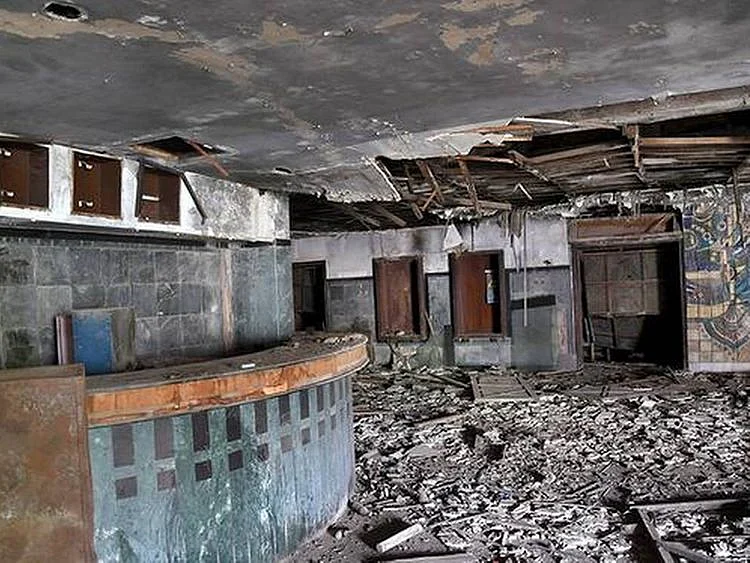Trial by Fire on Netflix: 26 years after Uphaar tragedy, a fight for justice in India
Unless there is media activism in India, legal cases can have a life of their own

This is not a work of fiction. 26 years ago on a sweltering June afternoon Unnati 17, and her brother Ujjwal 13, went to watch a movie, their parents had bought them tickets for the film Border and the family had a quick lunch before the children dashed off, promising to meet later at home.
They never came back. A ravaging fire broke out in a packed cinema hall in Delhi, 59 adults and children died of asphyxiation in the inferno.
Based on Delhi’s Uphaar tragedy, ‘Trial by Fire’ on Netflix is searing. It is a story no parent should visit and only a hardened viewer can go through it without getting emotional. The show is important, those born in the later years are only just learning through a television series one of the biggest man-made tragedies of the 90s.
But listening to those who were left behind is a gut- wrenching degree worse. “You don’t stop being a mom because your children are not there anymore,” Neelam Krishnamurthy tells me. The statement is as stark as it is heartbreaking, the passage of time doesn’t always do its thing.
Magnanimity of human tragedy
The magnanimity of that human tragedy has faded from the public consciousness, the deaths are just another statistic where justice has flirted only to deceive. Wheels within wheels is the story of how our legal system in no manner egalitarian, defeats an ordinary citizen.
Since the tragedy in 1997 Neelam and her husband Shekhar Krishnamurthy have made almost daily rounds of courts, they quit their jobs to dedicate their lives in not just finding justice for their children but in also raising awareness against the flouting of safety norms in public spaces which can have life-threatening consequences.
“It won’t bring our smile back,” they emphasise, “we continue to live a death sentence every day.” Yet, there may not be a more extraordinary couple.
The Krishnamurthys have taken on a system where the powerful hold sway and empathy is not always for the victims. Real estate tycoons Sushil and Gopal Ansal, the owners of Uphaar Cinema have been convicted twice but barely faced any jail term.
On the day of the fire additional unauthorised seating to increase sales blocked people from escaping towards exits that were anyway sealed, trapping the victims.
The Ansals were convicted of tampering with evidence — one of them was 64 years old at the time of the accusations — but were let off by a court because of ‘old age’. The messaging was not subtle, the lives of 23 children from ordinary homes was cheap and it is the families of victims on trial.
A shamed system
The Krishnamurthys have been in a tunnel from where the glinting light has more often than not been a mirage. But their existence in a maze makes for a compulsive study for it re-enforces how victims are shamed by the system.
While Neelam was deposing and recounting how she first saw her daughter’s dead body defence lawyers she says, broke into laughter. That is the day Neelam tried taking her own life.
Over the years the couple have faced threats -even by lawyers- their safety was compromised and Neelam has faced a humiliating barrage of obscene comments in court. As a reporter covering the case when the trial began I can vouch for the threats first-hand.
Since then like the rest of the country I have moved on but the Krishnamurthys are where I left them decades ago. They have not watched a single movie since that fateful day when they lost their children. What then is the definition of justice?
For those who don’t have the stomach for our system it is easy to shrug and move on, the pent- up frustration fizzles out with time just like a news cycle.
Neelam and Shekhar say they have lost count of the number of hearings they have attended but in the quagmire that is Indian lower court system it runs in thousands.
Two parallel legal systems
The Supreme Court bench, including the current Chief Justice Chandrachud, said in 2021, “There cannot be two parallel legal systems, one for rich and powerful and the other for common man, and that the existence of a dual system will only chip away the legitimacy of the law”. Yet, asking petitioners to keep faith is unfair, in a country with 4.4 crore pending cases, death can come quicker than justice.
Since the Uphaar fire other high-profiles tragedies have hit the headlines, the outrage predictably died down along with the candles. Neelam and Shekhar though defiantly refuse to let their children be just a number, their strength they say comes from them.
The couple escape to their kids’ room every time they are disheartened. But they have a message for those who want to take on a fight legally, “only do it if you are strong enough.”
It is the uncomfortable truth that unless there is media activism, legal cases have a life of their own. Neelam and Shekhar will never find closure but do we not owe them justice?
59 lives were lost on that hot June day yet, no one died.
Network Links
GN StoreDownload our app
© Al Nisr Publishing LLC 2025. All rights reserved.